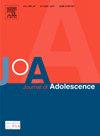Adolescents' trait mindfulness and psychological stress: The mediating role of attention
Abstract
Introduction
Based on the Combined Cognitive Biases Hypothesis, the current study via two parallel studies aims to explore the potential mediating role of attention biases and attention control regarding the link between trait mindfulness and psychological stress in adolescents.
Methods
For Study 1, we collected self-reported data from 2123 Chinese adolescents (mean age = 15.6 years, SD = 2.37; 52.8% female) in four schools. The participants completed measures of trait mindfulness, perceived stress, and attention bias. Mediation analysis was employed to investigate the potential mediating effect of attention bias. In Study 2, 123 participants (mean age = 17.7 years, SD = 2.68; 41.46% female) completed the attention network task after inducing attention bias. Then, trait mindfulness and perceived stress were measured. Mediation analysis was employed to investigate the potential mediating effect of attention control (alerting, orienting, and conflict monitoring) under attention bias.
Results
Study 1 demonstrated a significant mediating effect of negative attention bias ([−0.13, −0.07], p < .05) but not positive attention bias in the relationship between trait mindfulness and psychological stress. Study 2 revealed that conflict monitoring in negative attention bias ([−0.41, −0.16], p < .05), rather than alerting and orienting in negative attention bias, showed a significant mediating effect on the association between trait mindfulness and psychological stress.
Conclusions
Findings from the two studies suggest that conflict monitoring during negative attention bias may be the underlying mechanism through which trait mindfulness helps mitigate psychological stress in adolescents.

 求助内容:
求助内容: 应助结果提醒方式:
应助结果提醒方式:


